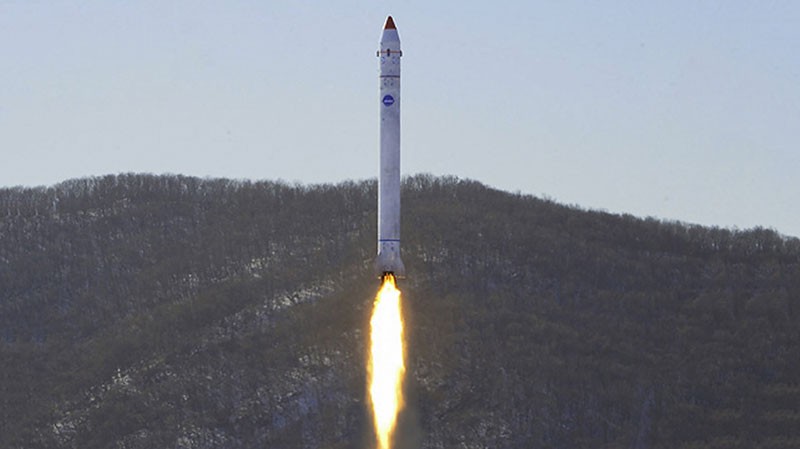According to KCNA, the country's spy satellite launch on the morning of May 31 was unsuccessful because the rocket had a problem and fell into the sea afterwards.
North Korean state media (KCNA) added that the rocket carrying the Chollima-1 spy satellite had a good launch in the first stage, but encountered a problem during the separation of the second booster stage.
 |
| A test launch of a North Korean spy satellite. (Photo: KCNA) |
“The carrier rocket carrying the Chollima-1 satellite fell into the western sea due to loss of engine thrust after launch, and the separation of the second stage of the rocket failed,” KCNA added.
This is North Korea's sixth satellite launch and the first since 2016. According to Reuters, the launch is intended to put North Korea's first spy satellite into space.
KCNA said North Korean authorities would review the incident and resume the launch soon.
Japan and South Korea also confirmed that a North Korean missile had fallen into the Yellow Sea. The South Korean military said the unidentified North Korean projectile had “landed in an unusual manner” off the country’s west coast.
CNN quoted the South Korean military as saying that Pyongyang launched a rocket carrying a new satellite at 6:29 a.m. on May 31. Two minutes later, an air raid siren sounded in Seoul, and an evacuation message from the city government was sent to residents.
Earlier, Japan's Defense Ministry warned that it would intercept any North Korean missile entering its territory after Pyongyang announced plans to launch a satellite between May 31 and June 11 to increase surveillance of US activities.
On June 30, Ri Pyong-chol, vice chairman of the Central Military Commission of the Workers' Party of Korea, said that the ongoing joint military exercises between the US and South Korea require Pyongyang to have "means capable of gathering information on the enemy's military actions in real time."
North Korean officials criticized the "reckless actions" of Washington and Seoul, saying Pyongyang needed to expand its reconnaissance and intelligence-gathering measures and improve its offensive and defensive weapons to boost its combat readiness.
Before the June 31 launch, the US State Department said any North Korean launch using ballistic missile technology would violate multiple United Nations Security Council resolutions.
According to TRA KHANH/VTC.vn
Source link




















































![[Maritime News] More than 80% of global container shipping capacity is in the hands of MSC and major shipping alliances](https://vphoto.vietnam.vn/thumb/402x226/vietnam/resource/IMAGE/2025/7/16/6b4d586c984b4cbf8c5680352b9eaeb0)













































Comment (0)